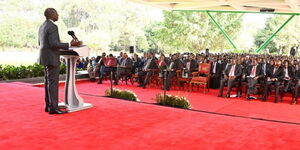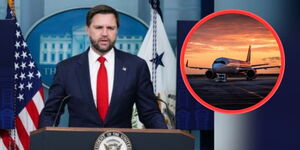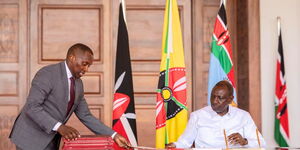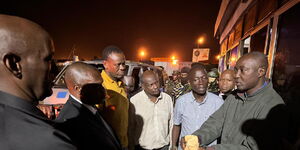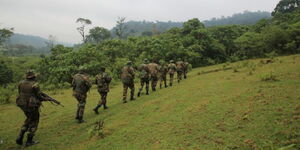As heads of state and government troop to New York to attend the 80th United Nations General Assembly (UNGA), African countries have shared one message: permanent seats in the powerful United Nations Security Council (UNSC).
At the heart of this message was President William Ruto, who was at the forefront of calling for two permanent seats for Africa in the UNSC, describing the current exclusion of Africa from permanent membership at the Security Council as outdated. He said it was a threat to the credibility and survival of the UN itself.
Ruto, during the General Assembly debate on Wednesday, September 24, pointed out that although African issues dominate the UN Security Council’s agenda, Africa remains the only continent without a permanent seat at the table.
A permanent seat at the UN Security Council comes with immense perks, such as veto powers and global influence over peace and security decisions.
From time immemorial, the UNSC has had only five permanent members: the United States, the United Kingdom, France, China and Russia. Permanent membership reflects the political realities of post–World War II. The five permanent members were the victors of the war and nuclear powers at the time, giving them a special role in shaping the global order.
Aside from the five permanent members, the UNSC includes ten non-permanent members, who are voted in every two years. The non-permanent members are drawn from other continents around the world but do not have the perks accorded to permanent members, such as veto powers.
A permanent member is guaranteed veto powers, which means they have the right to ‘veto’ any substantive resolution. This means that if a permanent member votes no, the resolution falls, regardless of the number of votes it got.
The veto power privilege has long been a bone of contention, with critics arguing that permanent members have used it to preserve their interests and sideline others.
Further, due to differing ideologies amongst the permanent members (the US vs China and Russia), others have argued that the veto power privilege has been used as a political tool to assert dominance by the permanent members.
Also, because the Security Council is the UN’s most powerful body, tasked with maintaining international peace and security, it holds substantial influence over decisions on authorisation of military action, sanctions, peacekeeping missions, and admission of new UN members.
For instance, a proposal supported by the US to convert the Kenyan-led Multinational Security Support (MSS) Mission in Haiti to a UN peacekeeping mission failed because China vetoed a resolution supporting the proposal.
Other functions of the Security Council include investigating any dispute or situation which might lead to international friction, recommending methods of adjusting such disputes or the terms of settlement, and formulating plans for the establishment of a system to regulate armaments.
The Security Council also recommends to the General Assembly the Secretary General's appointment, and together with the General Assembly, appoint judges to the International Court of Justice.
It remains to be seen whether the calls for African countries to be included as members of the UN Security Council will be heard, as little progress has been made over the years to reconstitute the UNSC permanent membership.

